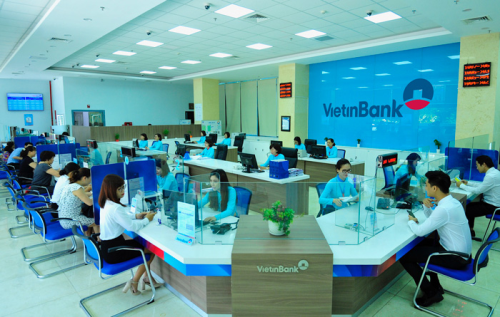A plan to allow large Vietnamese State-owned commercial banks to pay dividends in shares or retain dividends would help them accumulate capital and meet regulatory minimum capital thresholds, Fitch Ratings said on Friday.

A plan to allow large Vietnamese State-owned commercial banks to pay dividends in shares or retain dividends would help them accumulate capital and meet regulatory minimum capital thresholds, Fitch Ratings said on Friday.
However, the rating agency said, the positive effect is likely to be limited relative to the large capital needs State-owned banks face amidst rapid balance sheet expansion, underreporting of bad loans and Basel II implementation at the beginning of 2020.
Media have reported that Vietnamese authorities have agreed to a proposal from the State Bank of Viet Nam that would allow State-owned banks to preserve internally generated capital by retaining dividends or paying them out in shares. The plan would still need to be approved by the National Assembly and would enable State-owned banks to follow a practice already in place for their private counterparts.
”We estimate that the positive capital impact for Fitch-rated State-owned banks (Vietcombank and VietinBank) will be up to 30 basis points, which is small relative to our estimated potential capital shortfall of up to 200 basis points, assuming they target an 8 per cent Tier-1 capital ratio,” Fitch said in the report, adding Vietnamese banks are facing substantial capital needs in the run-up to the implementation of Basel II. These standards will increase banks' risk-weighted assets due to changes to credit risk-weights and the introduction of capital charges for operational and market risks.
According to Fitch’s analysis conducted late last year, Fitch-rated Vietnamese banks are estimated to need US$4.1 billion of additional capital, of which 90 per cent is accounted for by the State-owned banks. These banks' much larger capital shortfall reflects their lower capital positions and weaker profitability relative to private banks. The total amount of capital required could be even higher if banks raise allowance coverage to 5.0 per cent of gross loans and Viet Nam Asset Management Company special bonds, compared with 1.6 per cent at year-end 2018, to address underreported non-performing loans (NPLs) and Viet Nam Asset Management Company special bonds.
”The lack of depth in the local capital markets and foreign ownership limits continue to constrain banks' ability to raise common equity, which Fitch views as the best form of loss-absorbing capital. Viet Nam maintains a 30 per cent blanket foreign-ownership limit for banks and 20 per cent limit for a foreign investor deemed to have a strategic interest. Foreign ownership at Vietinbank is already at the 30 per cent cap, while for Vietcombank it is 23 per cent. Unless the cap is lifted, we expect banks to issue Tier-2 debt to help meet minimum regulatory capital ratios,” Fitch concluded. —VNS





